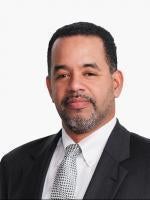Defending False Claims Act litigation is often a costly budget item. The disposal of weak cases by the government through the intervention decision making process has always been a critical safety valve for non-culpable defendants. Two of the more concerning trends in False Claims Act litigation, however, are (1) the increasing likelihood of relators pursuing factually and legally weak allegations after the government declines to intervene, and (2) courts allowing such cases to survive a Rule 9(b) motion to dismiss. A recent case in the Middle District of Florida involving the unintended consequences of a health system’s adherence to a local zoning obligation serves as a prime example of these troubling trends.
On August 14, 2015, in U.S. ex rel. Bingham v. BayCare Health System, the court denied the defendants’ motion to dismiss relator’s claim that BayCare Health System (BayCare) and an independent third party real estate developer, St. Pete MOB, LLC (St. Pete’s)—referred to by relator as BayCare’s “proxy”—entered into a “scheme” to enable BayCare to pass remuneration to physicians in violation of the Stark Law and Anti-Kickback Statute (AKS). According to the relator, the heart of this “scheme” is BayCare’s ground lease to St. Pete’s on a BayCare hospital’s campus to build a medical office building (MOB).
In this ground lease, BayCare provided a non-exclusive easement for MOB tenants to use the hospital’s parking facilities. As pleaded by the relator, and acknowledged by the court, this easement was included in the lease “to satisfy zoning and other governmental requirements.” Despite this salient fact, relator turns this legally-required easement into illegal remuneration under the Stark Law and AKS simply by alleging that one of BayCare’s purposes in providing the easement was for St. Pete to avoid incurring the costs to lease additional land and to build a parking garage, and then for St. Pete to “pass some or all of the millions of dollars in savings to physician tenants to encourage them to make or increase referrals.” However, the relator does not appear to have mustered support for this bald conclusion. The relator does not appear to allege that the terms of the physicians’ leases with St. Pete’s are problematic, other than suggesting that amending the leases in 2013 to allow the physicians, staff and patients to use the parking facilities to access the MOB at no charge is another sign of improper remuneration. The relator also asserts that BayCare provided a “rent concession” to the tenant physicians (even though BayCare is not the landlord) by claiming a tax exemption for what is alleged to be non-exempt property, which saved St. Pete’s about $140,000 in real property taxes. The relator alleges, with little support, that this tax exemption resulted in lower rent charged to the physician tenants and that BayCare is culpable for this alleged remuneration even though St. Pete’s was the lessor.
The legal theory and factual problems with this case are multifold. BayCare’s legal obligation to meet the local zoning requirement for the easement should raise significant challenges for the relator in proving the intent necessary for a criminal AKS violation. Nonetheless, the district court’s unwillingness to dismiss the AKS count demonstrates significant deference to the relator and forces the defendants to continue to expend costs litigating the matter. As for Stark, the relator’s complaint also appears to enjoy the broad benefit of the doubt from the court even though serious questions are presented as to whether the allegations could establish whether either direct or indirect compensation was paid to the physicians.
Notably, Thomas Bingham, the relator, is a serial whistleblower who has been previously successful at extracting settlements in prior FCA matters. Mr. Bingham is a certified real estate appraiser based in Nashville and admits to developing his qui tam allegations, not from insider knowledge, but rather from working with another client in the area, reviewing publically available information, and using “his skills and experience as a commercial real estate appraiser in uncovering the schemes.” He has brought at least two other FCA cases alleging AKS and Stark violations in hospital real estate transactions involving physicians. In 2008, he filed an FCA case against the Healthcare Corporation of America (HCA) and its Chattanooga hospital, Parkridge Medical Center, claiming that Parkridge made rental payments for office space to a physician group in excess of fair market value. This case settled in 2014 with HCA paying $16.5 million to the Government, of which Mr. Bingham received a $2.9 million relator share. Mr. Bingham has filed another FCA case against HCA, this time in Florida, alleging conduct similar to his Tennessee case. His complaint was unsealed on February 23, 2015, after the government declined to intervene. At minimum in his case against BayCare, Mr. Bingham’s admission about having no insider knowledge calls into question his ability to properly qualify as a relator under the FCA’s public disclosure bar.
Unfortunately, in at least some jurisdictions, it seems to be becoming easier for relators to pursue highly questionable fraud claims, after the government declines to intervene. While appellate courts are increasingly being called upon to reverse this trend (the Seventh Circuit’s recent rejection of implied certification claims is an apt example), hospitals and other providers are forced to assume the costly defense of meritless claims and weigh whether to take cases to trial to discourage whistle-blowers or settle matters to mitigate the often outsized risk of a “runaway” jury verdict.





 />i
/>i

